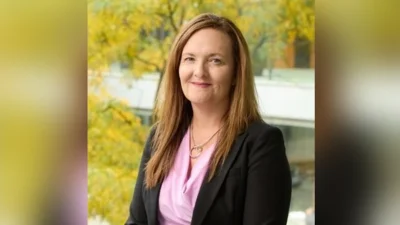Consumers are calling upon businesses to boost their efforts towards the circular economy and make it easier for them to reduce waste, save money and help improve our environment, a new CommBank report has found.
The rising cost of living, extreme weather events and supply chain disruption has brought waste and consumption into sharper focus for Australians, with 85 per cent of consumers concerned about the issue, according to CommBank’s latest Consumer Insights Report.
Jerry Macey, Commonwealth Bank's Executive Manager, Consumer and Diversified Industries, said in a circular model, the millions of unused products gathering dust in households become a tremendous source of value to consumers and the economy alike.
In a circular economy, existing products and materials are reused and recycled as long as possible through efforts such as sharing, leasing, reusing, repairing, refurbishing, and recycling.
Rising cost of living stood out as a key concern for more than three in four people, while 21 per cent regarded waste reduction as a significant medium-term challenge.
The report reveals around nine in 10 consumers regularly utilise reusable shopping bags. But some go further, with 53 per cent saying they regularly buy higher quality products that last. Almost one in three say they buy second-hand goods instead of new ones (32 per cent) and choose brands with waste reduction policies (31 per cent).
“Proactive initiatives are a powerful way to create engagement and loyalty with consumers who expect circularity and prefer to shop with businesses that support it,” Mr Macey said.
“People are concerned about the amount of waste and consumption in society, but as more effort, planning and costs are involved, participation begins to decline. Consumers want businesses to make it easier and more convenient to take part,” he said.
The report also found Australian households are sitting on an enormous amount of unused products. In the case of clothing, 38 percent of Australians said they had more than 10 items unused in the past 12 months, equivalent to at least 146 million unused items.
Initiatives that allow donations were the most in-demand (88 per cent), followed by buyback and resale programs (84 per cent) and business-led recycling programs (83 per cent).
About half of consumers also want hospitality venues to donate food to charity, and 36 per cent say they'll pay more to support the cause. Just over 40 per cent want food outlets to use local produce, and one in three say they'll pay higher prices.
Circular Australia Chief Executive Officer Lisa McLean said we could grow local and national economies in a resource and carbon-constrained future through the circular economic framework.
"By decoupling economic growth from the consumption of finite resources, the circular economy provides the sustainable framework we need to build the jobs and industries of the future,” Ms McLean said.
“There are big rewards for those organisations making the circular transition. It's a $2 trillion economic opportunity for Australia."
Consumer Insights Report October 2022
Original source can be found here.

 Alerts Sign-up
Alerts Sign-up